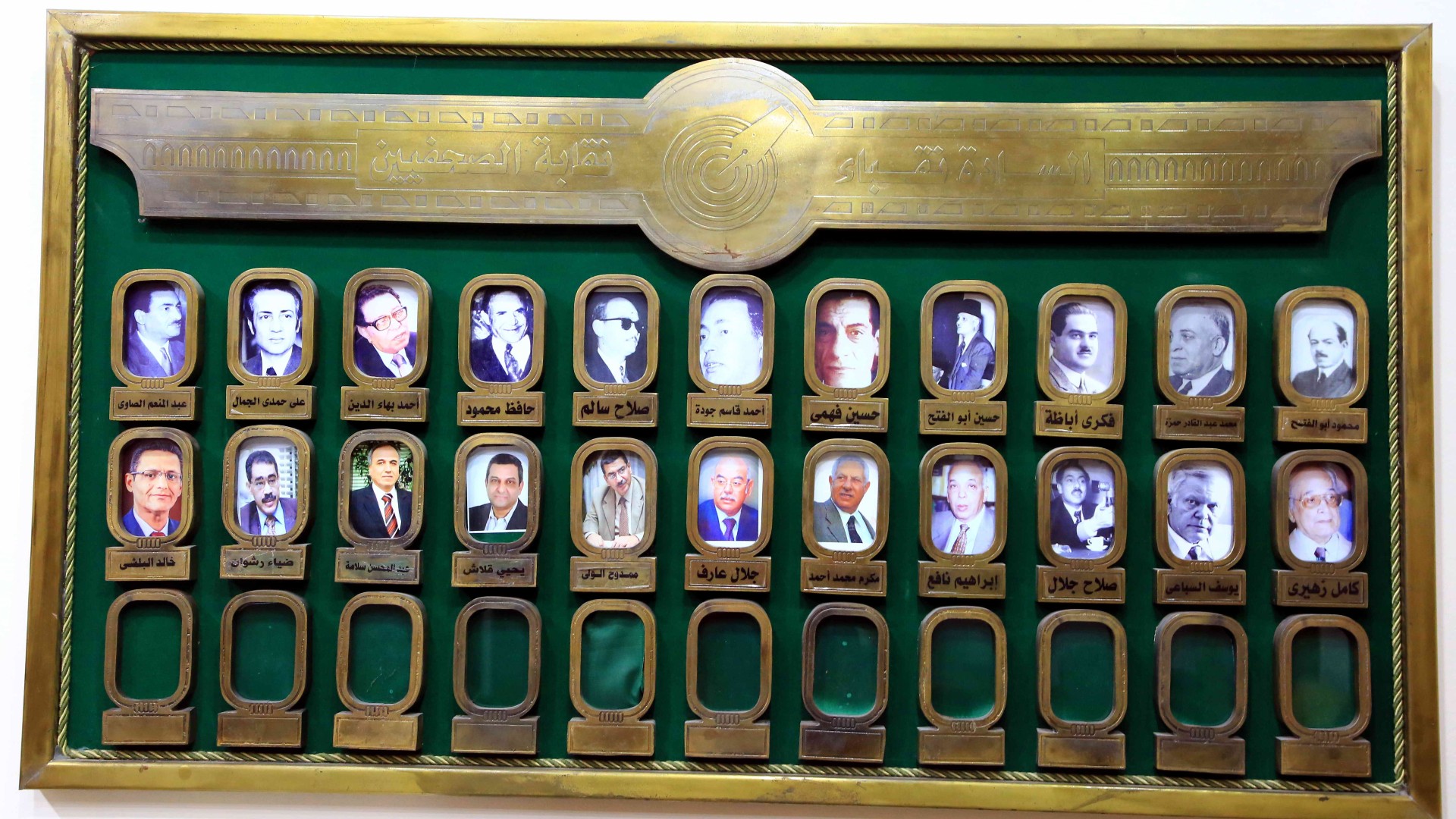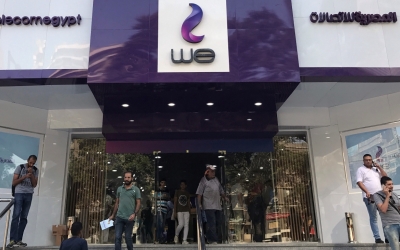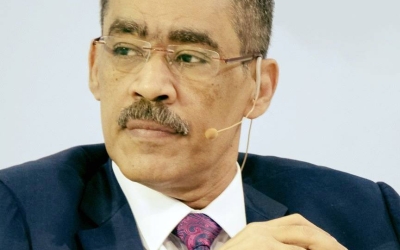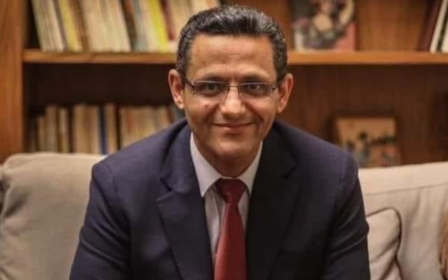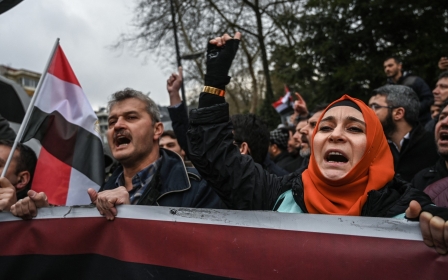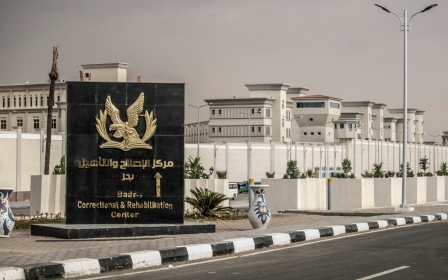Egypt: Meet the new journalist union head who sent shockwaves through Egypt
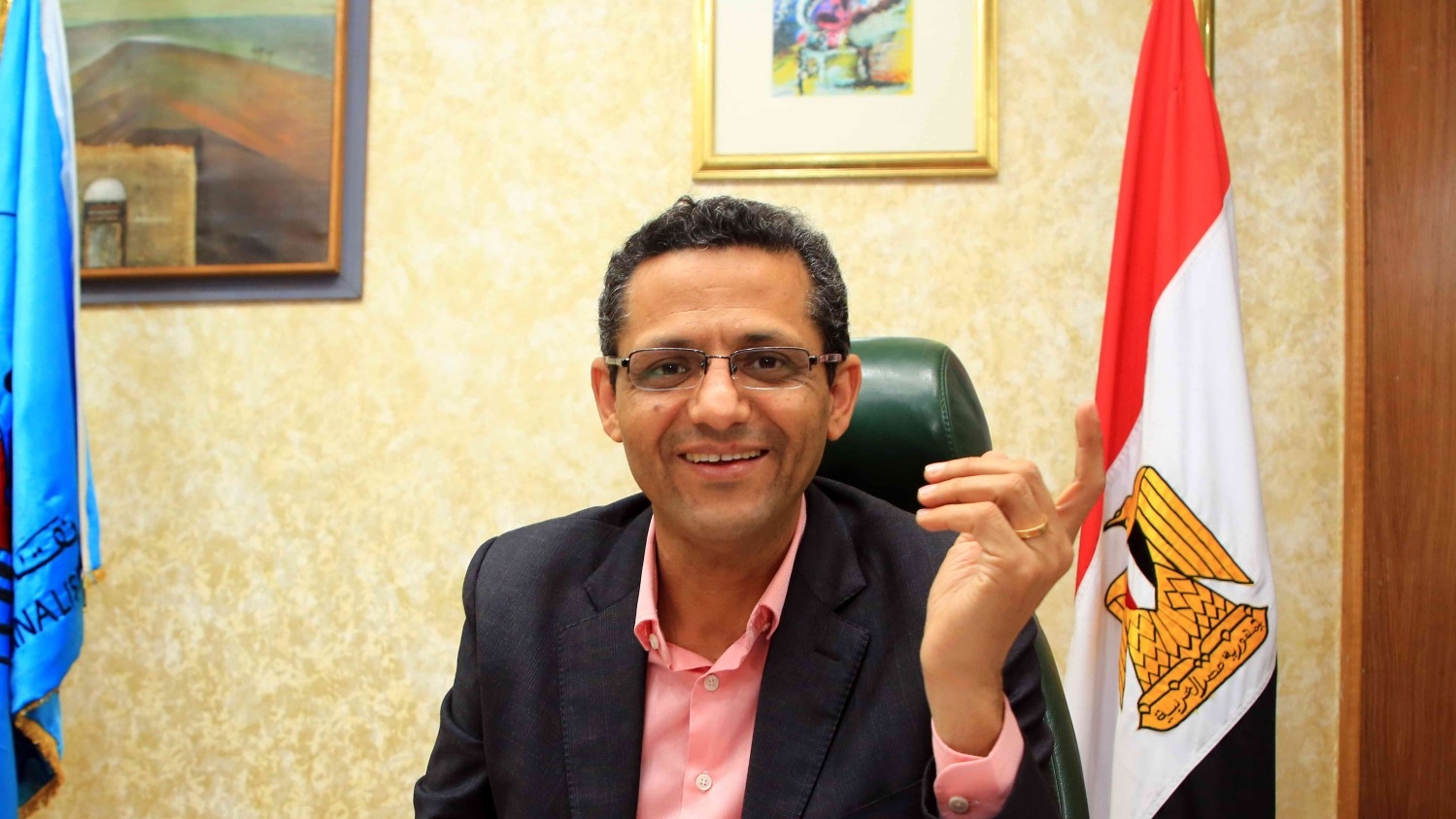
The election of dissident journalist Khaled al-Balshy as the new head of the independent guild of Egypt's journalists last week has been seen as a revolutionary development for the repressive media landscape in the country.
Balshy is known for his opposition to successive Egyptian governments, including that of President Abdel Fattah el-Sisi, and for being the chief editor of the opposition Darb news website currently blocked by the authorities.
'It became clear to me that I would win only one week before the election. Voters just wanted to express anger at their professional and financial conditions'
- Khaled al-Balshy
The 48-year-old journalist won the election of the syndicate on 17 March with a narrow margin, after defeating Khaled Meri, who was backed by state-owned newspapers and state-run television channels.
Balshy's campaign vowed that he would work to challenge the government's control of the media and to restore the syndicate's role as an independent voice representing the nation's media workers.
However, his journey to the helm of the 12,000 strong union had been far from easy.
New MEE newsletter: Jerusalem Dispatch
Sign up to get the latest insights and analysis on Israel-Palestine, alongside Turkey Unpacked and other MEE newsletters
"State-owned press establishments did not allow me to hold electoral conferences for their journalists," Balshy told Middle East Eye on his first official day of work on Tuesday. "My election banners were taken down, even inside the syndicate."
Balshy ran on a platform promising to defend press freedom during one of the most dangerous times to be a journalist in Egypt.
There was little enthusiasm for him inside the security establishment, which shares control over the media scene with the intelligence agency, when he nominated himself.
Meanwhile, his supporters were sceptical about his prospects in the elections as they believed that state support for his rival would reduce his chance of winning.
Protest votes
Whereas state-owned newspapers and intelligence-controlled television channels put out a welcome mat for Meri, they shunned Balshy.
Nevertheless, Meri faced tough competition due to the changing makeup of voters, 60 percent of whom currently working for private, rather than state media.
The syndicate pays members a government-funded monthly allowance of around 3,000 Egyptian pounds (roughly $100). During his campaign, Meri promised to increase this amount to 3,600 pounds.
The payment is significant, given that the average salary of a journalist who has spent 20 years working for a state-owned newspaper is around 5,000 pounds ($166) a month.
Balshy, meanwhile, says he will negotiate with the government to get more money.
When he started campaigning, victory was a distant prospect for Balshy.
"It became clear to me that I would win only one week before the election," Balshy said. "Voters just wanted to express anger at their professional and financial conditions."
Alaa Taha, a journalist at the Arabic language, state-owned daily Al-Gomhuria, told MEE that Meri's pledge to raise the pay of the journalists initially seemed attractive for voters, as many of them are simply struggling to make ends meet amidst staggering inflation.
Like many state-employed journalists, Taha voted for Balshy in the election, even though he and the other journalists were badly in need of the raise pledged by Meri.
This was why their vote was seen as a silent protest against their deteriorating conditions, state control of the media scene and the lack of freedoms.
"The journalists expressed their anger in their own manner," Yehia Qalash, a former head of the union, told MEE. "Deterioration in the professional and financial conditions of the journalists, and the government's desire to manipulate their union encouraged them to reject the government-backed candidate."
Balshy also said he would negotiate with the government to include journalists in a universal health insurance system.
"The journalists need to be part of the general state system," Balshy said.
A voice for detained journalists
Apart from tough economic conditions, dozens of journalists, including female journalists, languish in jail on what rights groups say are politically-motivated charges, including "spreading false news".
Since becoming president in 2014, one year after ousting his predecessor Mohamed Morsi in a coup, Sisi has led a relentless crackdown on the media. Reporters Without Borders classifies Egypt as one of the biggest jailers of journalists.
'Journalists are now rising up to defend their rights'
- Amr Badr, former head of union's Committee on Freedoms
Almost all private newspapers and television channels are now controlled by a company called United Media Services, known to be the media arm of Egyptian intelligence.
"Journalists are now rising up to defend their rights," Amr Badr, the former head of the Committee on Freedoms in the union, told MEE. "We want our union to be strong enough to defend our freedoms, a prerequisite for improving our professional conditions."
Balshy said he would negotiate with the government to secure the release of journalists from prisons.
"I will not give up until all jailed journalists are released," he said.
Balshy, however, is keen to establish a working relationship with the government, unlike speculations to the contrary.
He appeared on a local television channel on 21 March together with former syndicate chairman, Diaa Rashwan, and Meri, both pro-government figures.
He laughed when a fellow journalist expressed fear that some of Balshy's backers wanted to entice him to come into conflict with state authorities.
"This has nothing to do with reality," Balshy said. "Small gestures [from the state] can solve big problems," he added.
Balshy started his career at Rose al-Youssef, one of four major state-owned press establishments in Egypt, in 1998, and then moved to the private al-Dostor newspaper in 2005.
He rose to prominence in September 2008, when Mohamed al-Sayed Saeed, a renowned political analyst and a critic of late president Hosni Mubarak, handed over the saddle of the opposition al-Badeel newspaper to Balshy.
More recently, he has been subjected to a crackdown because of his work and his human rights advocacy.
In May 2016, while he was serving as a board member of the syndicate, Balshy was detained, along with then-syndicate chairman Qalash, after the authorities accused them of giving refuge to two journalists who were wanted by the authorities for criticising a maritime boundary demarcation deal between Egypt and Saudi Arabia. Egypt had ceded control of the Red Sea islands of Tiran and Sanafir to Saudi Arabia.
Amnesty International denounced the arrests of Balshy and Qalash as "the most brazen attack on the media the country witnessed in decades." In March 2017, Balshy was given a suspended one-year jail term in connection with the incident.
Middle East Eye delivers independent and unrivalled coverage and analysis of the Middle East, North Africa and beyond. To learn more about republishing this content and the associated fees, please fill out this form. More about MEE can be found here.


